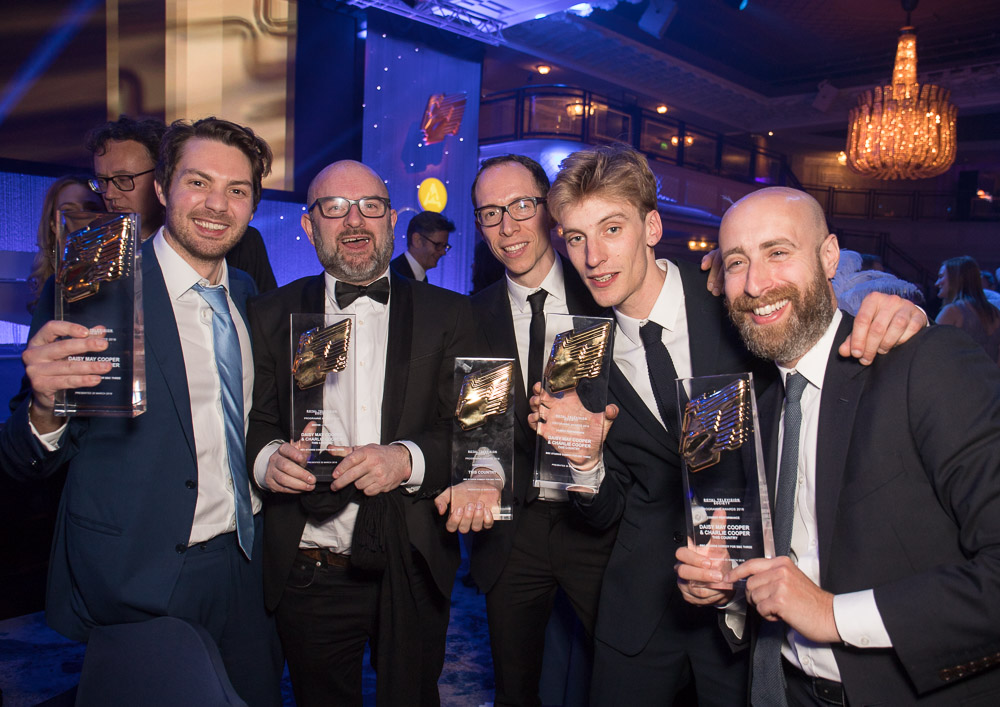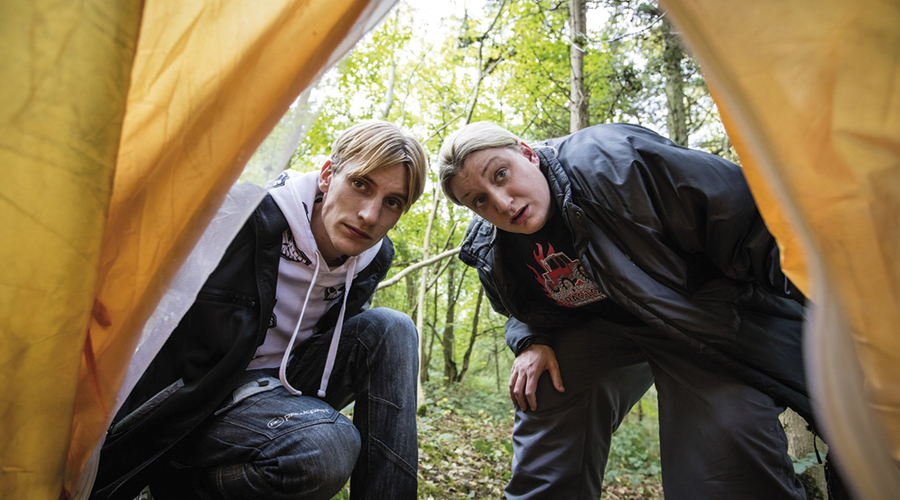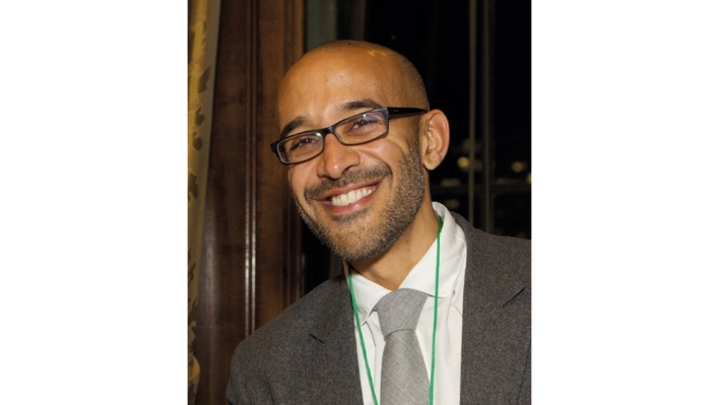Sarah Bancroft hears how the award-winning show evolved on its long road to the screen
No one had heard of cousins Kerry and Kurtan Mucklowe 18 months ago. Now, BBC Three’s mockumentary This Country – ostensibly about young people in modern rural Britain – which revolves around them, has garnered three Baftas, three RTS awards, rave reviews and a huge following.
The second six-part series, which finished airing in early April, has racked up more than 12 million iPlayer requests, and a third series is in the pipeline for next spring, along with an autumn “special”.
No wonder, then, that the chance to get the inside track on the comedy from producer Simon Mayhew-Archer, director Tom George and Charlie Cooper – one half of the real-life siblings who write and star in the series – made for a sold-out RTS Bristol event last month.
Together with Daisy May Cooper, Charlie’s sister, the team had snared “the elusive under-30 audience – the audience that all broadcasters die for”, noted Lynn Barlow, who chaired the evening. This Country was “pitch perfect” – how had they done it? “Because we’re incredibly childish,” quipped Mayhew-Archer. “Or incredibly talented,” countered Barlow.
Appropriately enough to the characters of Kerry and Kurtan, who spend large amounts of time trying to make something out of nothing, This Country came about only after a series of setbacks. In 2010, failing to get work as an actor, Rada-trained Daisy began writing a comedy based on life around Cirencester, where the Coopers had grown up and still live.

(Credit: RTS/Paul Hampartsoumian)
She roped Charlie in, initially to help with the typing, he claimed to laughter, after he dropped out of uni (“a sports science degree – tragic!”). By 2014, working with a production company, they had made a pilot for ITV, but that nearly put paid to the project. They lost control of their creation; no one liked it.
Fortunately, Daisy was dogged: she approached Shane Allen, head of comedy at the BBC: he agreed to be their last-chance saloon. Allen commissioned four episodes from the Coopers for BBC Three and introduced them to Mayhew-Archer, a comedy producer whose previous credits included Josh Widdicombe’s Josh.
Hating the pilot but loving a YouTube clip the Coopers had made of a Scrabble-playing Kerry screaming to her mum “Is Dave a word?”, the producer was clear: “The big thing we all wanted was that it should have the appearance of reality.”
After working up a couple of scripts with the Coopers, he was keen to get a director involved at an early stage. He found Tom George, who had a mix of comedy (including Hank Zipzer) and live-music experience.
The four hit it off instantly. “Obviously, we love drama and comedy, but we bonded over loving documentaries, and, right at the beginning, [Paul Watson’s] The Family, which was the original ob doc, about 1974,” said George.
As tight as the budget was – “and the first series was as low as they come,” said the director (“Lower!” interjected Mayhew-Archer) – they were all committed to giving the venture development time. “It had always been my ambition to be early on a production, conceiving the project together as a team, so it was an amazing opportunity,” said George.
The false start with ITV sharpened a lot of things. The four agreed that they had to go back to basics and keep things really simple. Authenticity became a watchword. After the disastrous pilot, which had included a number of wellknown, small-screen faces, Daisy wanted to avoid professional actors.
"Our dad had no acting experience… He’s spent 40 years doing the shittiest jobs… but as soon as we got him on camera, he was so good, so natural”
The result was that three of the main characters are untrained: Kurtan (Charlie Cooper); Kerry’s dad, Martin Mucklowe (played by Paul Cooper, Daisy and Charlie’s real-life father); and “Slugs” (Michael Sleggs, a school friend of the Coopers).
While Charlie had served an apprenticeship through years of writing with Daisy, and knew the characters and inflections inside out, “our dad had no acting experience… He’s spent 40 years doing the shittiest jobs… but as soon as we got him on camera, he was so good, so natural,” said Charlie. “But, credit to Simon, most producers would be, like, ‘God, no, you can’t get a non-actor.’ It’s such a risk. But he had a lot of faith.”
The team gave themselves nearly a year together, connecting a few days each month, before formal shooting. It built trust, gave them “time to get it wrong”, as Mayhew-Archer put it – and time to make discoveries.
A day intended to experiment with equipment, looking for a grainy documentary feel that wouldn’t be “too crappy”, brought an insight about the Mucklowe cousins. As Daisy/Kerry did a test piece direct to camera, a bored Charlie, semi in character, began swinging round a basketball net in the background. “Those little moments, you go, OK, that’s a nugget that we’re going to take,” explained the producer.
“So all of the talking heads [in the series], we always like it if things interrupt them, or the fact that one of them is never listening to the other one.”
While the high level of trust between the core team of four – its “sweet spot”, as Barlow called it – was crucial, a host of other factors helped shape the award-winning production. These included finding the lesser-known, but highly talented, Paul Chahidi and Ashley McGuire to play the Rev Francis Seaton and Mandy Harris, respectively.
Another was getting Nick Martin, who had come up through documentaries before working on Episodes, Peep Show and The Thick of It, as DoP – “He’s very instinctive and reactive, which is really important for long takes,” said George.
Important production decisions included: choosing to keep the “reality” of less-than-ideal natural lighting or sound; guarding rehearsal time; and making room for improvisation. Above all, the focus was on character, place and heart. The outcome was a comedy of light and shade, which became steadily more complex and nuanced as the two series progressed.
The evening included five clips from the show; the final one came from the poignant closing moments of the second series, with Kerry about to confess to a crime she hadn’t committed. “Where do you go from there?” asked Lynn Barlow. “Fuck knows,” answered Charlie.
Several questions from the Watershed audience queried the series’ relationship to reality. Were the characters really based on people the Coopers knew? Where was This Country filmed? Where did the relationship between Kerry and Martin Mucklowe come from? The short answers were: yes, as a starting point; Northleach, about 18km from Cirencester; and from a local man with two families, each with three children, but who only ever acknowledged one, said Charlie.
“Which is sort of tragic, but, sort of, quite funny,” he added. As either Kerry or Kurtan might have commented: “Harsh.” In other words – and the audience knew this well – like This Country, he was being clear-sighted to the point of it being hard to hear, strangely empathetic… and funny. The audience roared again.
The RTS Bristol event ‘Anatomy of a hit: This Country’, was held on 17 May at Watershed, Bristol. It was chaired by Lynn Barlow and produced by Suzy Lambert.
The inside track on…
Influences
Tom George: ‘A big influence for us was [the] Vice documentary Swansea Love Story, which is about a teenage heroin epidemic. You’ve got these outsider characters, right on the fringes of society, who won’t be told where to go or what to do. Obviously, it’s a very tragic story, but they’ve got this energy.’
Going back to basics
Charlie Cooper: ‘The pilot became a monster: too many characters, too many scenes. [We thought] we’ve got to strip it down… make these two main characters cousins and they’re living in a village – you can’t get more simple than that. But it gives you so much room for the comedy to breathe and you’ve got so many places to go with that.’
Six instead of four
Simon Mayhew-Archer: ‘We were only commissioned for four episodes, but we over-delivered and gave them six. Because a four episode series would just disappear: no one binges four episodes.’
Finding the right tone
Charlie Cooper: ‘[Paul Chahidi] brought so much warmth to [the role of the vicar]. We found the tone of the show, really, through him.’
Carrying on
Tom George: ‘We were really scared, coming back to the second series…. We were like, can we repeat that?… We never feel like it’s done and like it’s good.’ Charlie Cooper: ‘Daisy was just crying most of that second series!’







